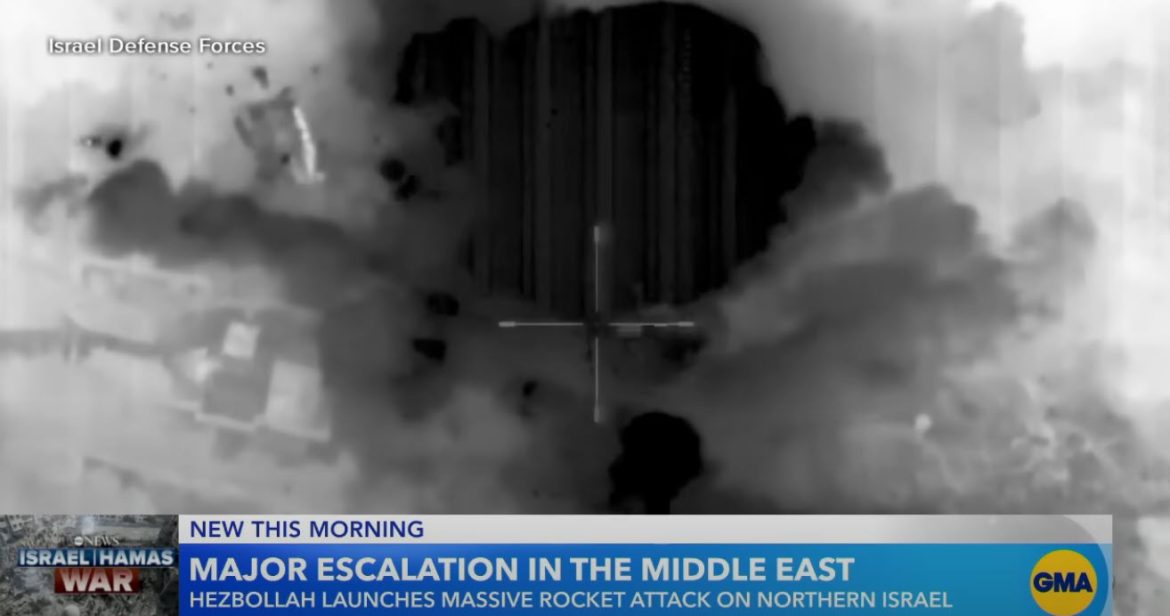Fears are mounting in the U.S. that the Israeli-Hamas war may be expanding, as attacks between Israel and the Lebanon-based terrorist group Hezbollah intensify. The Iran-backed Hezbollah has launched successive rocket barrages at northern Israel, retaliating for the assassination of a senior Hezbollah commander by Israeli forces. In response, Israel has deployed fighter jets to target “Hezbollah military structures.”
Hezbollah’s latest assault included over 200 rockets fired from Lebanon into Israel, marking the largest attack by the group since the onset of the Gaza conflict. This escalation follows near-daily exchanges of cross-border fire since October 7, when Hamas, a Palestinian ally of Hezbollah, attacked southern Israel, triggering the ongoing war in Gaza.
The Biden Administration is increasingly concerned that this escalation could spark a broader regional conflict. Reports indicate that U.S. officials are closely monitoring the situation, wary of the potential for a new, full-blown war involving multiple parties in the region.
Israel has attributed the rising tensions to Hezbollah and its primary backer, Iran. As Israel’s military operations in Gaza escalate and ceasefire proposals stall, the intensifying conflict with Hezbollah raises the threat of a wider regional war.
Palki Sharma, a geopolitical analyst, underscores the gravity of the situation, noting that the continuous exchange of airstrikes and the involvement of powerful regional players like Iran could significantly destabilize the region. The international community is urging for restraint and a de-escalation of hostilities to prevent further loss of life and the potential spread of conflict.



